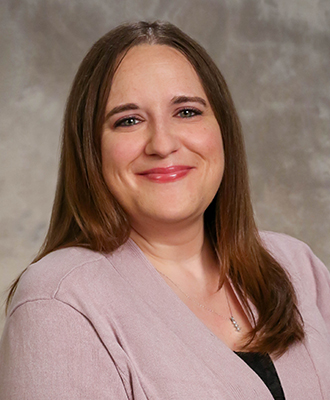Advance Directive: Help Your Family Plan for the Future
April 13, 2022Categories: In the Community, Your Wellness

Whether you come to the hospital for a routine procedure or are unexpectedly brought in for an emergency, you might recall being asked if you have a healthcare advance directive. Many people are not familiar with the term. I commonly hear: “What is that?” or “I think I have it at home in the safe, but I am not sure” or my favorite, “Ask my wife.” Advance directives are important, and hospital staff will provide information to help you understand why you should complete.
Free Service
National Healthcare Decisions Day is April 16. We are offering curbside service to complete your Advance Directive, ask questions and get your documents notarized from 8 a.m.-4:30 p.m. on Monday, April 10-Friday, April 14. There will be designated parking spots on the 2nd Floor of the Pavilion garage. This service will also be available inside the hospital at varying locations, please call the number below for more information.
Plan Ahead
Do not be alarmed. This is a good opportunity to think about your healthcare wishes and who you want to make decisions, if you become unable to communicate. All providers from your primary care physician’s office to your preferred hospital are required to ask all patients if they have a healthcare advance directive, which can include: healthcare durable power of attorney (DPOA) and healthcare treatment directive or living will. Some people have one or both documents.
Document Your Wishes
When completing the DPOA, appoint someone who can and will follow through with your wishes. You may wonder if this is necessary if you are married. Regardless of your marital status, complete a healthcare advance directive. While you may have talked to your spouse, documenting what you want will help others, such as your children, siblings and friends understand your wishes.
Many individuals are under the impression that healthcare treatment directives (living wills) are only for end-of-life care. This is a common misconception in my opinion. What you value and consider an acceptable quality of life often varies throughout your lifetime. What I may find an acceptable quality of life in my 30s will be different than in my 70s. Talk about your healthcare wishes now before there is a healthcare crisis in your life.
Pandemic Impacts Healthcare Decisions
The pandemic highlighted the importance of healthcare advance directives for our patients, especially when someone required intubation (placed on a ventilator). I will never forget July 4, 2021. While on duty, a CICU nurse informed me a young woman was being admitted with respiratory distress due to COVID-19. The patient was BiPAP dependent and would be intubated that day.
I spoke with the patient’s nurse and confirmed the patient didn’t have an advance directive. I donned the appropriate PPE and asked the patient if she had the energy to at least appoint an agent for her DPOA form. Thankfully, she had the strength to appoint her husband and her mother and sign the document. Unfortunately, now was not the time to talk in detail about her healthcare wishes – she could barely catch her breath and struggled to keep her eyes open. I recalled her weakly asking about her chances of coming off the ventilator. I thought how do I provide hope to this patient without potentially making a false promise? I remembered telling her she needed intubation today and what needs to be considered now is how long she would want to be on a ventilator. This is a conversation no person in their early 30s has probably considered, and unfortunately, due to the circumstances we would not be able to discuss it now. She needed to save the little breath she had left to say, “I love you” to her family over a video call before the team intubated her. I left the room misty eyed and finished signing and notarizing the DPOA form. I hope completing this form provided some comfort to her that day.
Please talk with your family and friends about your healthcare wishes and consider completing an advance directive before a healthcare crisis.
Explore More
Prepare For Life's Uncertainties
Watch Dr. Gamble'sAdvance Care Planning Lunch & Learn
Read more about creating an Advance Directive.
Download the Caring Conversations: Advance Care Planning Workbook
Have the Talk



